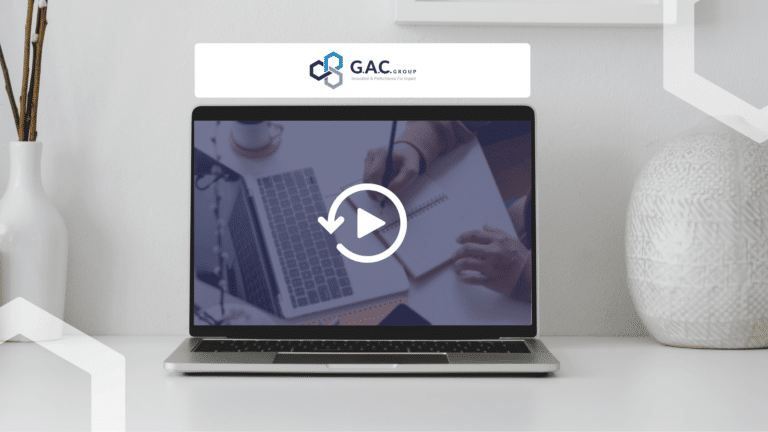Every year the DSN is anchored a little more in our daily lives, with new features and one ever-expanding scope. What to expect in the years to come and how anticipate these developments how to avoid being backed into a corner? Without being exhaustive, let's go back to some past or future highlights and note :
What happened in NSD in 2021:
The integration of the Declaration linked to the obligation to employ disabled workers (DOETH) for the private sector into DSN, with the transfer of the collection to URSSAF/MSA
- Provision on your URSSAF contributor account, of the general and OETH workforce calculated by the URSSAF and the MSA on the basis of the DSN 2020
- Declaration via the DSN, by you, of elements related to the DOETH (external BOETH workforce, deductible expenses, amount of the contribution, etc.)
The introduction of a new block in the DSN relating to supplementary pensions in order to comply with the ordinance imposing the consolidation of top-hat pension type rights.
The availability of BPIJ, which simplifies the monitoring and management of IJSS recovery by allowing payroll software to directly retrieve IJSS payment slips in a machine-to-machine fashion.
The strong trend of embedding the DSN in the administrative landscape and in the long term has continued in 2022, including:
The last phase of integration in DSN for public service employers.
Collection of the training contribution (PSC and PSC-DC) and the main part of the apprenticeship tax:
-
- The transfer to Urssaf of the collection of legal contributions to vocational training, the apprenticeship tax and the additional apprenticeship contribution since 1 January 2009.er January 2022.
- The monthly payment of contributions professional training and the main part of the apprenticeship tax[1] for which the first collection by URSSAF occurred in January 2022 (DSN due on February 5 or 15, 2022);
- The integration of declaration of these contributions in DSN.
[1] The Apprenticeship Tax was until then due annually in a staggered exercise (March 1 N+1 in respect of the payroll of year N).
Automated reception of the general workforce and OETH calculated by URSSAF and MSA: the calculated workforce is now transmitted for automatic integration into DSN.
At present, the public authorities and Social Security organizations are conducting several projects to make the DSN and the resulting procedures more reliable. In this context of economic crisis, several projects of 2023 have been postponed, cancelled, updated, declarative tolerance...
On 2023 carryovers and cancellations:
Transfer of Agir-Arrco collection
This large-scale project has been under pressure since its inception. It was to be effective as of 1er January 2023. To date, it seems to be postponed for 2024 but its existence is questioned by the Senate in the first reading of the PLFSS for 2023 of November 2022.
Declaration and calculation of IJSS
Initiated by the Social Security Financing Act for 2020 and the implementing decree 2021-428 From April 12, 2021, the methods of calculating IJ are modified when the reference period is incomplete, i.e. when the employee has not worked during all the months used for the calculation of IJ.
This legal and regulatory evolution leads to significant adaptations of the data to be reported in DSN by the companies for the calculation of the indemnities. This is why the new reporting procedures have been postponed to 2024.
Withholding tax
Initially scheduled for 2023, the payment of the withholding tax has finally been abandoned. Its declaration remains valid.
The administrative seizure by third party (SATD)
Developments have been incorporated in Standard 2023:
- The block "Administrative seizure by third parties - S21.G00.98" ;
- The block "Payment to social security organization - S21.G00.20" has been modified in order to distinguish between SATD and PAS payments.
However, the dematerialization of the SATD through the DSN has been postponed to a later date and some of the changes have been maintained as a precaution.
On declarative tolerances
Taxation of amounts paid under the profit-sharing scheme
A distinction must be made between sums paid and sums blocked under the profit-sharing scheme.
Unavailable sums allocated to a company savings plan, a group retirement savings plan or a collective company retirement savings plan, in application of a collective agreement, are exempt from income tax.
On the other hand, the sums paid immediately as profit-sharing or incentive payments to the employees concerned (at their express request) are taxable according to the rules applicable to salaries and wages, and are therefore subject to the Prélèvement à la source (PAS).
For the amounts paid immediately, 2 situations must be distinguished:
- The employer makes the payment himself: he must declare these sums in DSN and submit them to PAS like any other salary income.
- However, if a third party institution (often a bank) makes the payment on behalf of the employer, it is accepted that these amounts are not subject to the PAS. It is a administrative tolerance applicable for the years 2019 to 2023 inclusive.
However, as of January 1er As of January 1, 2024, the PAS must be carried out by the service provider, under penalty of sanctions. These sums will also have to be declared through the PASRAU system under the siret of the third party establishment.
On the new declarations
The declaration of part-time therapy
The declaration of the therapeutic part-time via DSN and in particular the substitution of salary certificates to the CNAM and MSA is postponed to 2023
The consequences of transferring the collection of vocational training contributions and the apprenticeship tax to the Urssaf and the MSA
As part of the transfer of these contributions to Urssaf and MSA :
- The monthly declaration of these contributions from 2022 onwards means that the amount of the tax base for these contributions will no longer be declared at the beginning of year N+1 via block S21.G00.44 "assujettissement fiscal".
- The balance of the taxe d'apprentissage (apprenticeship tax) and the contribution supplémentaire à l'apprentissage (supplementary apprenticeship contribution) are now included in the DSN 2023 standard for reporting and collection purposes. annually by Urssaf and MSA.
Data on the employment of disabled workers in the public service
The DSN will carry from 2023, for the public service, the data relating to the employment of disabled workers.
On the farther horizon, in 2024 :
- As of January 1, 2024, the collection of conventional contributions for professional training and social dialogue may be transferred to URSSAF, at the option of the professional branches concerned.
- A new block for exempt overtime is to be provided.
- The therapeutic part-time would be declared in days and not from date to date.
- Social net income reporting will be integrated as a standard.
The number of declarations falling within the scope of the DSN and within the scope of management of the URSSAF and the MSA continues to grow.
The DSN becomes the vehicle for all your declarations and the transmission channel for a great deal of information. The organizations to which the DSN is addressed rely on everything in it to control and if necessary ask you to regularize the contributions paid.
It is therefore essential to ensure the quality of the data transmitted in your DSNs to avoid heavy adjustments to be made on subsequent DSNs.
We are at your disposal to give you visibility on your DSNs and lead a compliance audit complete or on a particular theme in order to update any inconsistencies and save you hours of exchanges with the organizations or to put in place the adjustments requested.

FINAN Laure
HR Performance Consultant - Audit of Social Charges

Claire Guillou
Senior HR Performance Consultant








